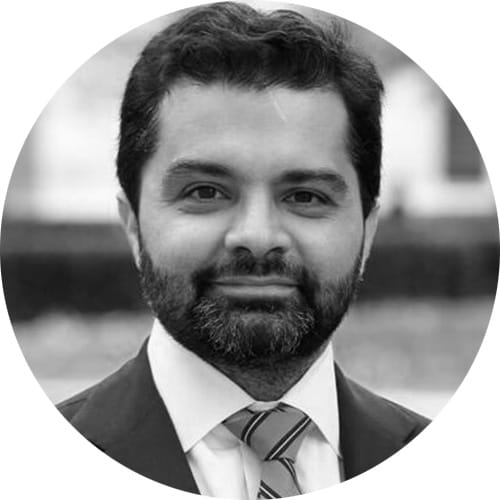About this episode
This episode discusses the costs of liquidity provision at Decentralized Exchanges. Ciamac Moallemi (Columbia University) explains that liquidity providers at a Decentralized Exchange always face a loss relative to an asset portfolio that actively rebalances to match the asset weighting of the Decentralized Exchange at all times. This loss, known as Loss-Versus-Rebalancing (LVR, pronounced 'Lever'), is the primary cost of liquidity provision. Design refinements to mitigate this cost are discussed.
Paper: Automated Market Making and Loss-Versus-Rebalancing
Guests

Ciamac Moallemi
Professor of Business at the Graduate School of Business, Columbia University.

Andreas Park
Professor of Finance at the University of Toronto.

Fahad Saleh
Associate Professor at the University of Florida
About our guest
Ciamac C. Moallemi is William von Mueffling Professor of Business in the Decision, Risk, and Operations Division and the director of the Briger Family Digital Finance Lab at the Graduate School of Business at Columbia University, where he has been since 2007. A high school dropout, he received S.B. degrees in Electrical Engineering & Computer Science and in Mathematics from the Massachusetts Institute of Technology (1996). He studied at the University of Cambridge, where he earned a Master of Advanced Study degree in Mathematics (Part III of the Mathematical Tripos), with distinction (1997). He received a Ph.D. in Electrical Engineering from Stanford University (2007). Prior to his doctoral studies, he developed quantitative methods in a number of entrepreneurial ventures: as a partner in a $200 million fixed-income arbitrage hedge fund and as the director of scientific computing at an early-stage drug discovery start-up. He holds editorial positions at the journals Operations Research and Management Science. He is a past recipient of the British Marshall Scholarship (1996), the Benchmark Stanford Graduate Fellowship (2003), first place in the INFORMS Junior Faculty Paper Competition (2011), and the Best Simulation Publication Award of the INFORMS Simulation Society (2014). Aside from his academic work, he regularly consults for fintech companies. His research interests are in the development of mathematical and computational tools for optimal decision making under uncertainty, with a focus on applications areas including market microstructure, quantitative and algorithmic trading, and blockchain technology.


